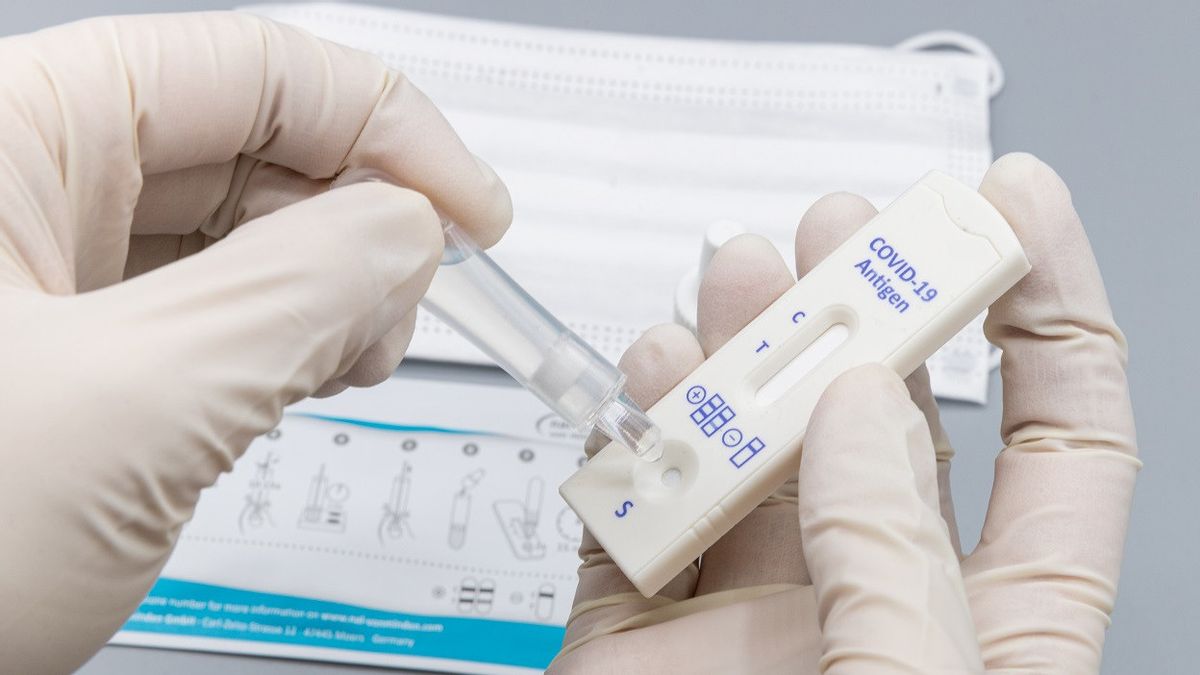JAKARTA - Germany will study how reliable the antigen rapid test is in detecting the fast-spreading Omicron variant of COVID-19, Health Minister Karl Lauterbach said on Sunday.
"We don't know exactly how well this test worked for Omicron," Lauterbach explained on public broadcaster ARD, adding that the results of the assessment would be available in the next few weeks.
"Obviously, however, the alternative of not testing at all would be too dangerous," continued Lauterbach, a scientist, and doctor.
Earlier, he told Germany's Sunday newspaper it should change its COVID-19 vaccination strategy to tackle the Omicron variant, ensuring it can develop a new vaccine quickly if it encounters more lethal coronavirus variants in the future.
The Omicron variant now accounts for 44 percent of coronavirus infections in Germany, according to data from the Robert Koch Institute (RKI) for infectious diseases. Last Sunday, RKI recorded 36,552 new cases of corona infection in 24 hours, three times the number of the previous week.
Separately, the Lower House of the Bundestag Parliament was due to discuss a draft law for a general vaccination mandate backed by business and the public sector, but has been postponed amid uncertainty about unified support for it in a three-party coalition government.
To note, Lauterbach, of the Social Democratic Party, strongly recommends mandatory vaccination. Meanwhile, Justice Minister Marco Buschmann of the libertarian FDP in an interview with the Sunday newspaper Bild am Sonntag also urged parliament to decide on the matter immediately.
SEE ALSO:
However, Greens parliamentary leader Britta Hasselmann said in an interview with media group Funke, parties should discuss the issue internally first.
"This is not an easy decision, it implies a deep intervention," he said.
The English, Chinese, Japanese, Arabic, and French versions are automatically generated by the AI. So there may still be inaccuracies in translating, please always see Indonesian as our main language. (system supported by DigitalSiber.id)













